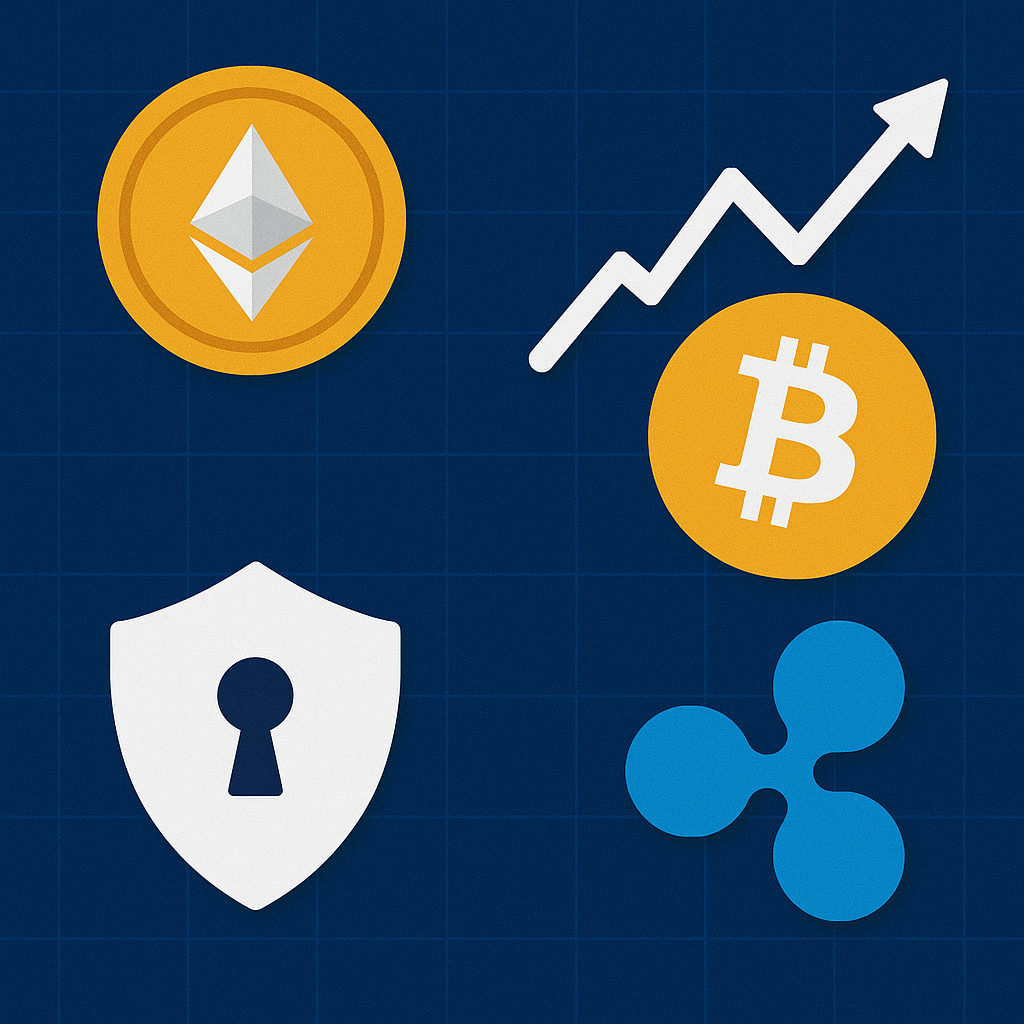1. U.S. SEC Greenlights First Spot Ethereum ETF
The U.S. Securities and Exchange Commission this week approved the country’s first directly backed Ethereum exchange-traded fund, marking a major milestone for crypto’s bridge into traditional markets. The SEC granted a nod to at least two ETP issuers after months of back-and-forth over custody and market surveillance rules. The new ETH ETFs will begin trading on major exchanges next week, giving institutional and retail investors a regulated vehicle to gain exposure to Ether without holding the token directly. Proponents say spot ETH funds will deepen liquidity and narrow the gap between futures-based products and the underlying asset; critics warn of potential price manipulation. Nevertheless, the decision follows last year’s approval of multiple Bitcoin spot ETFs and is widely viewed as a signal that U.S. regulators are softening their stance on major digital assets. (via Reuters)
2. Bitcoin Nears $75,000 as Halving Countdown Accelerates
Bitcoin climbed above $72,000 Friday, brushing its all-time high as investors jockey ahead of the network’s fourth halving event—expected in late April. Over the past month, BTC has surged roughly 25%, driven by dwindling miner rewards and rising anticipation of supply shock. On-chain data shows large holders (“whales”) accumulating at current levels, while futures open interest has hit record highs, suggesting growing leveraged bets. Analysts point to a confluence of “halving hype,” a dovish U.S. Federal Reserve pivot, and renewed ETF inflows as key drivers. If history repeats, past halvings in 2012, 2016, and 2020 preceded multi-month rallies. Still, some warn that elevated derivatives funding rates could trigger short-term corrections. (via CoinDesk)
3. MiCA Crypto Rules Take Effect Across the EU
Europe’s landmark Markets in Crypto-Assets Regulation (MiCA) officially went live on January 1, bringing comprehensive licensing, transparency, and consumer-protection regimes to all 27 EU member states. Starting today, crypto issuers, exchanges, and wallet providers must register with national regulators, adhere to strict capital requirements, and publish whitepapers that meet standardized disclosure criteria. Stablecoin issuers face particularly tight supervision, including reserve audits and redemption guarantees. Firms that miss the registration deadline risk fines and operating bans. Proponents argue MiCA will foster innovation by harmonizing a fragmented regulatory landscape, while critics warn the rules may stifle smaller startups with hefty compliance costs. National regulators are expected to publish the first batch of license approvals by Q2. (via The Block)
4. Euler Finance Hit by $200M Flash-Loan Exploit
Euler Finance, a decentralized lending protocol, suffered a flash-loan exploit on Thursday that drained approximately $200 million in user funds. The attacker manipulated Euler’s liquidity pool pricing oracle through a complex sequence of trades, triggering a mispriced collateral valuation and allowing an oversized borrow. Euler’s core team paused all markets within 30 minutes of detection and has since engaged leading blockchain forensics firms to trace and recover stolen assets. The protocol will compensate affected users from its insurance reserve, and a planned governance vote aims to strengthen on-chain oracles to prevent replay of similar attacks. The incident underscores persistent vulnerabilities in DeFi and the critical role of up-to-the-minute security auditing. (via CoinTelegraph)
5. Judge Tosses SEC Appeal in Ripple XRP Case
In a surprise ruling, a U.S. District Court judge declined the Securities and Exchange Commission’s motion to reconsider parts of last year’s landmark decision that found XRP sales to institutional buyers did not constitute unregistered securities offerings. The court held that the SEC failed to demonstrate clear legal error in the original judgment and denied the agency’s request to reopen findings distinguishing programmatic XRP sales on exchanges from targeted institutional sales. Ripple CEO Brad Garlinghouse praised the decision as “game-changing clarity” for the industry. The SEC has indicated it may still pursue an appeal to the Fifth Circuit but must file briefs within the next 30 days. The ruling further cements XRP’s legal standing and offers crypto firms a key precedent in securities-law disputes. (via Reuters)

